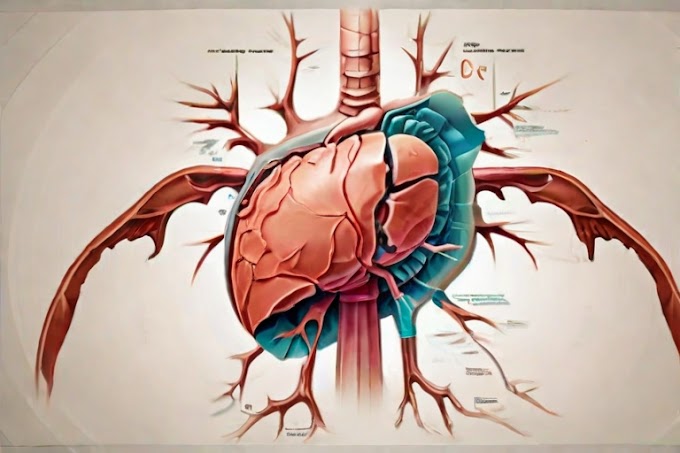Depression, often referred to as the "silent epidemic," transcends mere sadness. Its effects are profound, touching every aspect of an individual's life. From physical well-being to social interactions and cognitive functioning, the impact is far-reaching and often underestimated. In this exploration, we delve into the multifaceted effects of depression, shedding light on the complexities that individuals grappling with this condition face daily.
1. Introduction
Depression is more than just a fleeting feeling of sadness; it is a pervasive mental health disorder that affects millions worldwide. Understanding the effects of depression is crucial for fostering empathy and providing effective support to those in need.
2. Physical Effects
2.1 Impact on the Nervous System
Depression takes a toll on the nervous system, leading to disruptions in neural pathways and neurotransmitter imbalances.
2.2 Changes in Sleep Patterns
One of the evident physical manifestations is the disruption of sleep patterns, with sufferers experiencing insomnia or excessive sleep.
2.3 Effects on Appetite and Weight
Depression often alters appetite, leading to weight loss or gain, which further exacerbates the physical toll of the condition.
3. Emotional Effects
3.1 Persistent Sadness and Hopelessness
Emotionally, individuals with depression grapple with persistent feelings of sadness and hopelessness, creating a pervasive cloud over daily life.
3.2 Difficulty Concentrating and Making Decisions
Cognitive functions are hindered, making concentration and decision-making challenging tasks for those affected.
3.3 Loss of Interest in Activities
Engaging in once-beloved activities becomes a monumental task as depression robs individuals of interest and pleasure.
4. Social Effects
4.1 Isolation and Withdrawal
Depression often leads to social withdrawal, as individuals struggle to communicate their internal battles.
4.2 Strained Relationships
Relationships may suffer as communication dwindles, and the affected individual withdraws emotionally.
4.3 Impact on Work and Productivity
In a professional setting, depression can lead to decreased productivity, absenteeism, and strained work relationships.
5. Cognitive Effects
5.1 Negative Thought Patterns
Depression fosters negative thought patterns, creating a distorted lens through which individuals view themselves and the world.
5.2 Memory and Cognitive Function Impairment
Memory lapses and cognitive impairments further add to the challenges of daily life, affecting work and personal responsibilities.
6. Behavioral Effects
6.1 Changes in Daily Habits
Depression often results in drastic changes in daily habits, including disrupted sleep, poor dietary choices, and a lack of interest in personal hygiene.
6.2 Risk of Substance Abuse
Individuals may turn to substances as a coping mechanism, increasing the risk of addiction and complicating the overall health picture.
7. Impact on Physical Health
7.1 Increased Susceptibility to Illnesses
Depression weakens the immune system, making individuals more susceptible to various illnesses.
7.2 Weakened Immune System
The chronic stress associated with depression contributes to a weakened immune system, exacerbating existing health issues.
8. Long-Term Effects
8.1 Chronic Health Conditions
Untreated depression can lead to chronic health conditions, amplifying the long-term impact on overall well-being.
8.2 Increased Risk of Other Mental Health Disorders
Depression often opens the door to other mental health disorders, creating a complex web of challenges for individuals seeking stability.
9. Treatment Options
Addressing depression requires a multifaceted approach, including psychotherapy, medication, and lifestyle changes.
9.1 Psychotherapy
Talk therapy provides a safe space for individuals to explore and understand their emotions, fostering healing and resilience.
9.2 Medication
In some cases, medication may be prescribed to rebalance neurotransmitters and alleviate symptoms.
9.3 Lifestyle Changes
Healthy lifestyle choices, including regular exercise and a balanced diet, play a crucial role in managing and overcoming depression.
10. Preventive Measures
10.1 Stress Management
Proactive stress management is vital in preventing the onset or recurrence of depression.
10.2 Healthy Lifestyle Choices
Prioritizing a healthy lifestyle, including regular exercise and a balanced diet, contributes to overall mental well-being.
10.3 Social Support
Building a strong social support system acts as a protective factor against the adverse effects of depression.
11. Understanding the Link with Other Conditions
11.1 Anxiety Disorders
Depression often coexists with anxiety disorders, requiring a comprehensive treatment approach.
11.2 Cardiovascular Diseases
Research suggests a link between depression and cardiovascular diseases, emphasizing the need for holistic health care.
12. Myths and Facts about Depression
12.1 Dispelling Common Misconceptions
Addressing prevalent myths fosters a more informed and supportive community.
12.2 Encouraging Open Conversations
Creating a dialogue around mental health encourages openness and reduces the stigma associated with depression.
13. Seeking Help
13.1 Importance of Professional Assistance
Seeking professional help is a crucial step in managing and overcoming depression.
13.2 Support from Friends and Family
The support of loved ones is instrumental in the journey toward recovery.
14. Coping Strategies
14.1 Mindfulness and Relaxation Techniques
Incorporating mindfulness practices and relaxation techniques aids in coping with the challenges of depression.
14.2 Building a Strong Support System
A robust support system provides the foundation for resilience and recovery.
15. Conclusion
In conclusion, the effects of depression are intricate and pervasive, impacting physical, emotional, social, and cognitive aspects of an individual's life. Understanding these effects is the first step toward fostering empathy, reducing stigma, and providing meaningful support.
Frequently Asked Questions
How common is depression?Depression is a prevalent mental health condition, affecting millions globally.
Can depression be cured completely?
While complete cure varies, effective management and treatment can lead to significant improvement.






